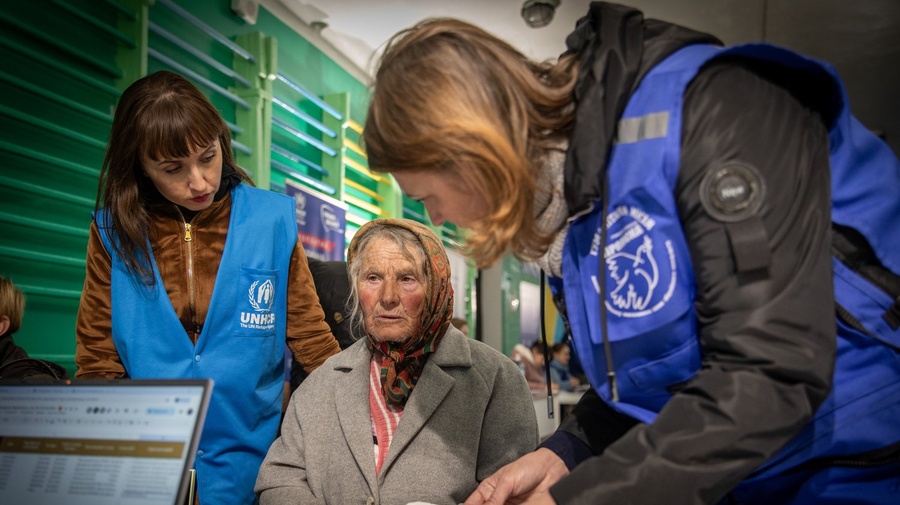UNHCR Nansen Award winners show compassion for refugees is alive and well
UNHCR Nansen Award winners show compassion for refugees is alive and well

Lyzatska Mariia, 72, an evacuee from Kostiantynivka, is helped by Proliska case worker Oksana Taranenko (right) at Pavlohrad transit centre in eastern Ukraine.
What role does UNHCR play in Europe?
UNHCR works to safeguard the rights and well-being of refugees, asylum-seekers, stateless people and internally displaced persons by providing guidance and support to governments across Europe, collaborating closely with partners, and promoting the best international standards in legislation, policy and procedures.
As the custodian of the 1951 Refugee Convention, UNHCR supports efforts by governments and other stakeholders to ensure access to asylum and to international protection for refugees and asylum-seekers, as well as promoting durable solutions. UNHCR works to strengthen partnerships with state and non-state actors in order to ensure the inclusion of refugees, to garner support for both refugees and the communities hosting them, as well as enhancing joint advocacy efforts in the spirit of the Global Compact on Refugees.
With a Regional Bureau in Geneva, Switzerland, and office presence in 35 European countries, UNHCR is covering 49 States, including 27 EU Member States, and one territory in the Europe region.
Learn more about UNHCR's work in Europe
Stay informed with UNHCR Europe Updates
Browse country pages in Europe:
Need help?
Find information and services for refugees, asylum-seekers and stateless persons
Latest news and stories from UNHCR in Europe





